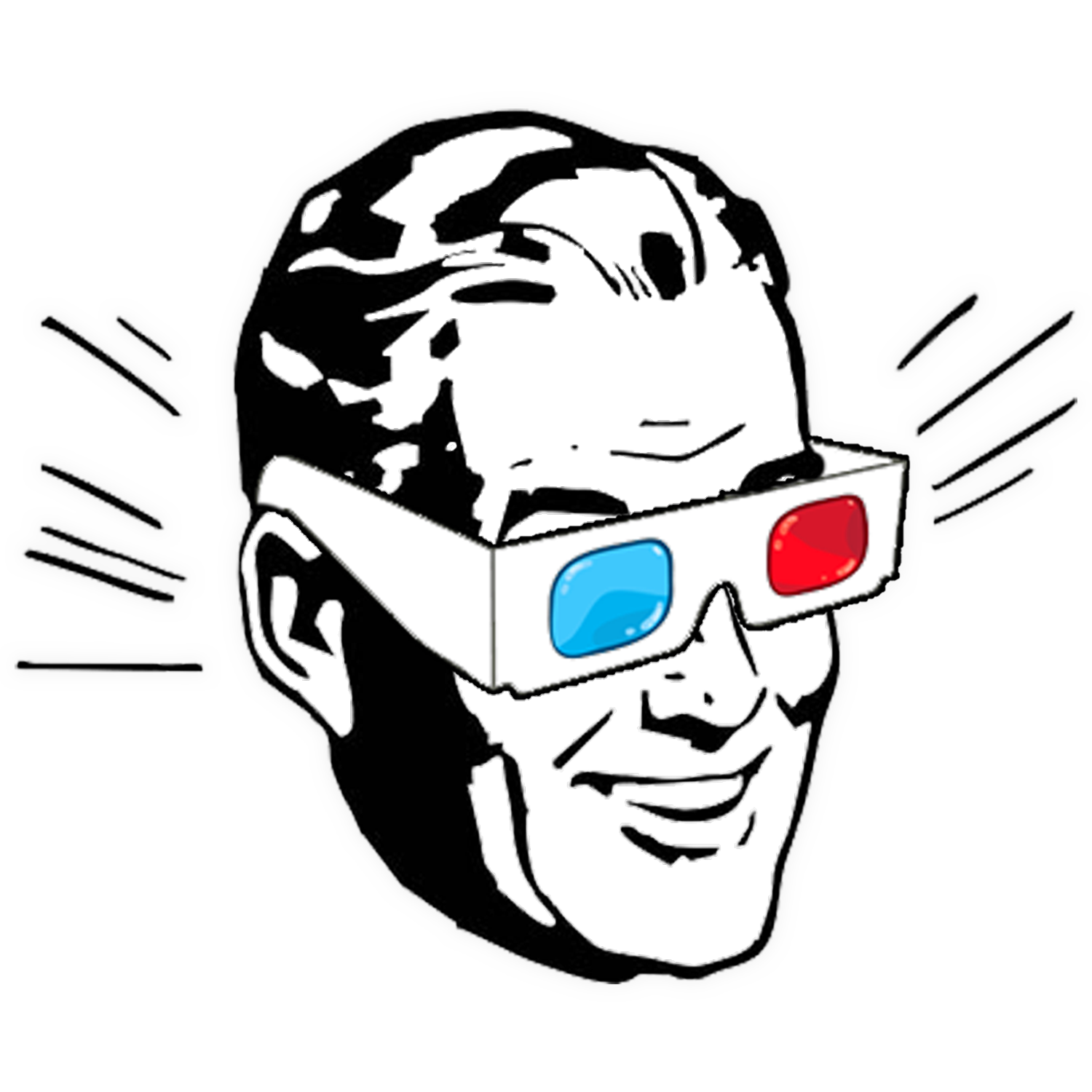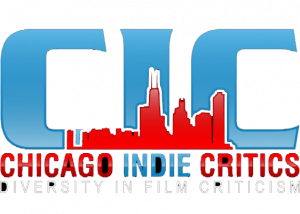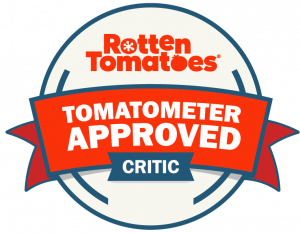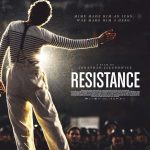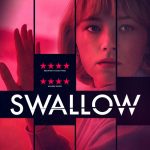
Carlo Mirabella-Davis- Hot Seat Interview- Director- Swallow
Carlo Mirabella-Davis made a movie that seems to have arrived at the right moment. Swallow earned high praise out of the 2019 Fantasia Fest and the 2019 Brooklyn Horror Film Festival, but when it made it’s feature debut, the Cronoavirus had hit, and the new standard was to stay home. I guess that means you don’t have an excuse to miss out on one of the best movies of 2020, from IFC Films and available now on VOD, and you should take my advice. Swallow is an original picture, with a lead actor that commands our attention in Haley Bennett, and a steady direction from Carlo Mirabella-Davis. The first feature that Mirabella-Davis had directed was a documentary about the oscar winning picture Once, so Swallow is a completely different kind of movie, and one that shows off just how great of an artist that Mirabella-Davis is. He’s a student of the NYU Tisch school, he’s well-versed in the history of cinema, and it shows in every frame of Swallow. I was extremely lucky to be able to chat with Carlo and put him on the hot seat for AMovieGuy.com:
AMG.COM: How have you been holding up during the Coronavirus pandemic? It seems like the only thing we can talk about these days.
CARLO MIRABELLA-DAVIS: First, thank you so much for talking to me about the film. I am doing good, I hope your doing okay in Chicago. It’s so strange, it’s like we are in a Black Mirror episode.
AMG.COM: It’s interesting to be having a time of isolation, Swallow is a film that analyses the psychological side of isolation, and how it can be inflicted upon someone, specifically women, when they are expected to stay home and take care of things. Is this just a bit of fate that this is happening at the same time of Swallows release?
CARLO MIRABELLA-DAVIS: It’s really surreal. To have made a film that is about someone who is isolated and struglling with this kind of alienation, now everybody is experiencing that. I hope, that in some way, that Swallow provides a kind of solace or working through for people that watch it. I think that even if we weren’t in quarantine, obviously I made this movie before coronavirus, I think there is a lot of isolation that happens in our modern world. Especially since social media and other actions online give us the feeling of communicating or interacting online, when in fact we are all in our disperate, small cages. It’s something that happens in the tightening of our patriarichal system, we often find our selfs in. Seperation, seperate, divide and conquer. Separation, where we are told that you stay over there, while we are over here, there’s a push for a lack of empathy you see coming from the powers that be, which is unfortunate. I think that even though we are all now separating from each other, I have seen an increase in empathy between everyone. I think films can encourage empathy, fight prejudice, and I hope Swallow is a movie that can help people feel seen and I am happy to be a part of that.
AMG.COM: Can you go into how you got the idea to write Swallow? What was the inspiration?
CARLO MIRABELLA-DAVIS: The film was inspired by my grandmother. She was a homemaker in the 1950’s, in an unhappy marriage. She developed various rituals of control, because she was feeling isolated, and her life was out of her hands. She became an obsessive hand washer, interestingly, and she would go through four cakes of soap a day and twelve bottles of rubbing alcohol a week. Rituals of control are a lot about looking for order and looking for order in things you can control. My grandfather, at the behest of the doctors, put her into a mental institution, where they gave her electroshock therapy, insulin shot therapy, and a non-consensual lobotomy. None of this of course cured her of OCD. I always felt there was something punitive about it. That she was being punished for not living up to societies expectations; what they thought a mother and a wife should be. I always wanted to make a film about that. Hand washing is not exactly cinematic, maybe it is becoming more cinematic now, but at the time I remember seeing a photograph of all the contents in someones stomach that had pica syndrome. These objects had been surgically removed, fanned out on a table, like an archaeological dig, I was fascinated. I wanted to know what drew the patient to those artifacts. It almost seemed like something spiritual, like a holy communion, and I wanted to know more, so I started after that.
AMG.COM: I want to ask you about Haley Bennett, was she your first choice? And how did you prepare her for the role, outside of what she did for herself?
CARLO MIRABELLA-DAVIS: We were incredibly fortunate that Haley Bennett decided to bring Hunter to life. I think she delivers an earth shattering performance in this movie. I remember discussing with my incredible producers Molly Asher and Mynette Louie, that we really needed someone to play Hunter who could effortlessly evoke audiences empathy and bring the audience into their internal cosmology. There’s not that much dialogue. There are scenes of Hunter alone. We knew we needed an actor that had an intense micro-calibration of their features, so that they could tell the story thorough the emotions in their eyes, and facial expressions. The wonderful casting director Allison Twardziak suggested Haley, I watched The Girl on the Train, and thought she was incredible in that film. I wanted to see her in a lead role. I thought she might be interested in doing something that was a bit dangerous and bold. This part might appeal to her, but I thought she would never say yes. I wrote her a letter, offering her the part, and I figured that was it, I wouldn’t hear back from her. Amazingly, she loved the script and wanted to meet with me. At our first meeting, we had an instant, telepathic bond, and I think we knew right away we wanted to tell a story together. Haley was also an executive producer on the film. She was very generous with her time. She poured her soul into the part.
AMG.COM: One of the things I loved about Swallow is how you play with a color pallet. The room becomes red when Hunter adds a red film to the windows. Sometimes it looks green in the bedroom. Outside the color seems overcast and gray. What was your thought process and the meanings of the different colors? Was it a mood thing?
CARLO MIRABELLA-DAVIS: Absolutely. I am fascinated by the language of color in film. I was fortunate to work with an incredible design team. Our cinematographer- Katelin Arizmendi, is a true visionary, she is so good at elevating the subtext of a scene through camera direction. My amazing production designer, Erin Magill, has an incredible sense of aesthetics and color. Our costume designer, Liene Dobraja, is so good at expressing who people are through what they wear. All of the stuff, the idea of Hunter’s universe being inflected through her environment, Erin Magill was passionate about the idea to have Hunter decorating every aspect of the house. Every object, piece of furniture, is an opportunity to fully tell something, because it is coming from her. If you notice, she is decorating the house the way she thinks this controlling family wants it to be. But every once and a while, Hunters true case emerges, in a beautiful design. The scene where Hunter puts this gel, a red film over the babies bedroom window, it’s a great touch that Erin added, and it shows. It’s a moment of danger, her true feelings coming through. There’s an entire color journey throughout the movie. I was very influenced by Hitchcock’s color pallet and Suspiria by Dario Aregento as well.
AMG.COM: I also wanted to ask you about the house, did you do a location scouting? Or where did you find this isolated home? It felt eerily similar to the house in Parasite.
CARLO MIRABELLA-DAVIS: Right, well I am so honored with the Parasite comparison, I thought it was an unbelievable movie, a masterpiece, really. I saw Parasite after we finished the film and I was in shock. They also have this modern, all glass house. I was excited about that. We spent a lot of time searching for the house. We all did a lot of location scouting, including Haley (Bennett) and executive producer Joe Wright (director of Darkest Hour), he came aboard as well. We all knew the house was a character, ever since I had seen The Shinning, I’ve believed that location is another character in the script. Eventually, I remember walking into this house, when our location scout found it for us, and looking around and thought, “my god, it’s a Hitchcock film. This is North by Northwest.” Interestingly too, not sure if you noticed, there are these giant marbles, they look like round sculptures outside the house. When I saw that, I knew it was perfect. An interesting thing about those modernist spaces, you felt it in Parasite, is that when you are in them, you assume, because of the glass windows you will feel integrated into nature and feel a holistic sense of calm. But when you are inside, you feel quite vulnerable, like you are in a glass display case. That was something that Erin Magill talked about. The Hunter character needed to be in a diorama, a glass prison. At night you feel the eyes of the woods on you.
AMG.COM: Swallow is a bit of a hard film to pin down for style. Of course it is your own vision, but I picked up a bit of Todd Haynes mixed with John Cassavettes. Did you have any other inspirations or director styles in mind?
CARLO MIRABELLA-DAVIS: We had many influences, one of which was Woman Under the Influence by Cassavettes and Safe by Todd Haynes. Also La Captive by Chantal Akerman, as well as many others, Rosemary’s Baby. Actually one of the big points of bonding that I have had with the people I’ve worked with is an inspiration and connection with movies. My excellent editor Joe Murphy is a huge fan of all the films I’ve mentioned, and it’s exciting to work with someone like him. Someone who is obsessed with our influences and excited to explore those types of films. It helped with the rhythm and the pacing of Swallow. And even our composer Nathan Halpern gives the thing a Douglas Sirk feel in his score. I loved it.
AMG.COM: I want to talk about the third act, that is where it takes a shift, going from movie about the pressures put on a women, and adds an extra layer of trauma. It takes the audience to a different level emotionally. Was your intention to surprise the audience, show an honest side to the story, or just create more empathy for the Hunter character?
CARLO MIRABELLA-DAVIS: For me the two go hand and hand. You always want to tell a truthful, honest story that you hope will be powerful and create an emotionally cathartic reaction in the audience. Usually, those kinds of stories wind up being surprising, because the way life is can be dangerous. It can also be painful, heartfelt, and fulfilling with things that people don’t talk about or put on a screen. That organically winds up happening. I’m also a believer in a co-mingling of genre’s, which produces a beautiful friction between those different tones. I like to think of Swallow as the tiramisu of genre’s. Body horror, psychological thriller, dark comedy, and also a domestic drama. I think there’s a nice interplay that can happen with the mingling of those genres to keep things unexpected.
AMG.COM: Thank you Carlo. I keep switching Swallow and The Invisible Man as my favorite movies of the year, so you are in great company. It’s great work.
CARLO MIRABELLA-DAVIS: Fantastic, I am so pleased to hear that. I was honored that people have said they make a good double feature. Thank you for the intelligent questions.
